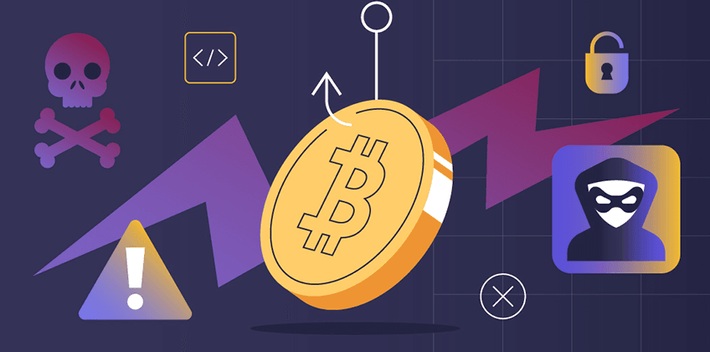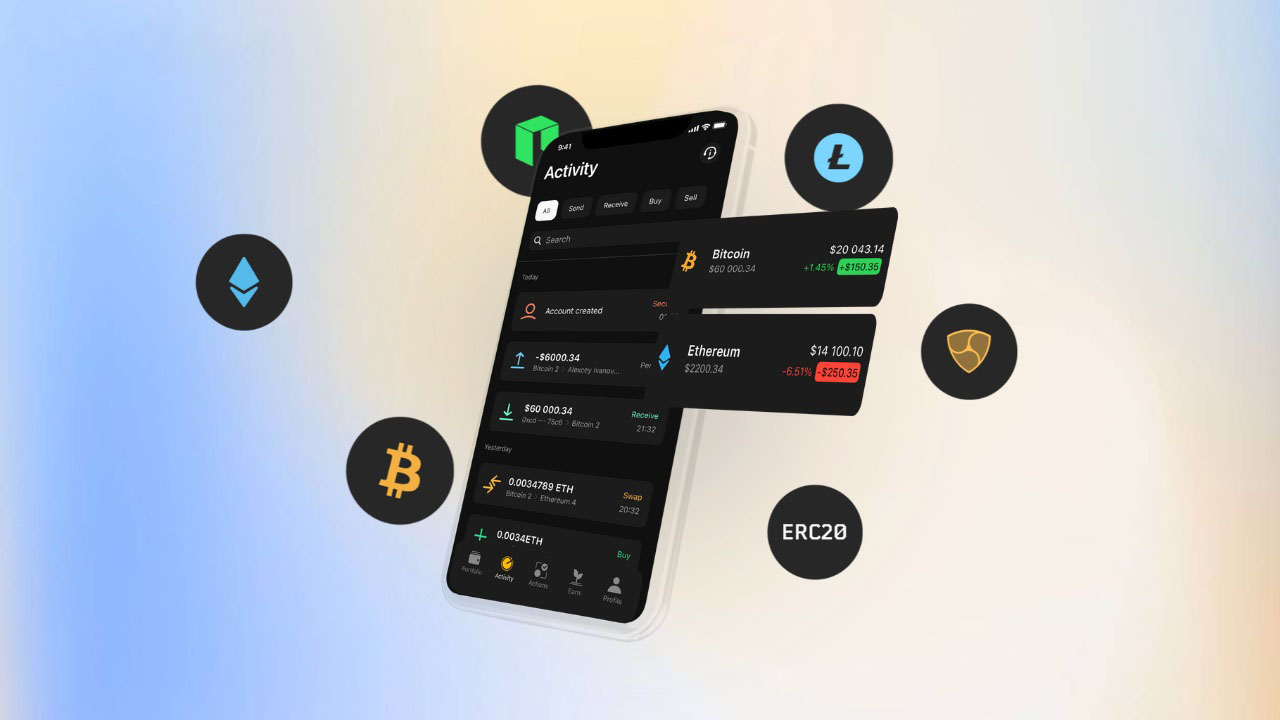Cost of Crypto Hacks: Are Your Investments Really Safe?
In the flashy world of crypto, security breaches are the dark tales no one wants to tell. Imagine waking up, full of hope, checking your wallet, and finding nothing. Zero. Zilch. The reality hits: hackers struck. The cost of crypto hacks isn’t just a figure—it’s your hard-earned money slipping through the cracks. In our dive into the world that buzzes with blockchain and bustles with Bitcoin, we’ll unravel the massive financial blow of these hacks. We’ll dig into real costs, explore if there’s hope for clawbacks, and show you how to shield your digital gold. Ready to crack the code on crypto safety? Let’s get started.
Understanding the Financial Impact of Cryptocurrency Hacks
Estimating the Direct Costs from Major Cryptocurrency Heists
Have you ever wondered how much a big crypto theft could cost? We see news of major crypto thefts shaking the market. I dive deep into these cases to find out just how much money they drain. Assessing these losses is tricky, but essential to grasp what’s at stake. I look at stolen funds first. This number can reach millions or even billions. But that’s not all. I also factor in the response efforts. Think of all the tech experts called in to fix things. Their services don’t come cheap.
If a hacker cracks a crypto vault, it’s not just the missing coins we mourn. The price of the affected token often falls. This happens as trust in the currency dips. Every investor feels this hit. The loss of trust can make things worse than the theft itself.
Think of the towering costs when a hacker hits a crypto exchange. Beyond the stolen digital cash, exchanges face a tough road. They must boost security, handle legal fights, and win back scared customers. Some may not make it and shut down for good.
Compensation and Legal Recourse for Crypto Hack Victims
Now, let’s talk about the victims. Can they get their money back? The answer is sometimes yes. But often, it’s no. Legal fights over stolen crypto are new and tough. Lawyers and courts are still figuring out the rules.
Victims may seek payback through lawsuits or settle with exchanges. But legal costs are high, and wins are not sure. Many lose more in these battles.
I also help track down stolen funds. When hackers move stolen crypto, we can sometimes trace it. This way, a few lucky victims might see some of their money again. But it’s a long process with no guarantees.
So, what can you do to keep safe? Keep a close eye on where you put your crypto. Use wallets with strong security and pick exchanges that have good track records. Make sure they have strong walls against hackers and clear plans for if things go south.
Understanding these costs is key. It helps everyone in crypto stay alert and safe. It shows how heavy these thefts hit and why stopping them matters so much. The market depends on trust. Without it, the crypto world could see darker days. We all need to fight to keep the trust alive.
Analyzing Crypto Exchange and DeFi Platform Security Breaches
The Ripple Effect of Blockchain Vulnerability Costs
When crypto exchanges get hit by hackers, the pain spreads fast. You might ask, “What’s the real cost when blockchain fails us?” Well, let’s dig in. First off, the price is not just what’s stolen. It’s bigger. Much bigger. When hackers break in and grab digital cash, they also shake people’s trust. This means coins can drop in value. Fast. Everyone feels it—the small saver, the big trader, and the tech folks behind the screens.
Smart contracts can have flaws. This makes DeFi platforms easy targets. When they get hit, it’s tough. Projects may slow down, and new money gets scared to join. Sometimes, the lost cash is so high we can’t get it back. This hits the whole market. Tokens sink in price, and that’s bad news for your wallet.
Protecting against these leaks is key. We must get smart about spotting weak spots. We can’t let hackers win. Better walls around our cyber cash means it’s safer for all.
Strengthening Security Protocols to Prevent Future Hacks
After a big hack, fixing the holes is job one, but we also need good guards up front. The best way is to build stronger locks—security rules that keep thieves out. We can learn from past breaks to do this. Exchanges should pull together and make sure they’re all safe. If one falls, they all can.
Protecting your crypto takes a team. We need clear plans to act fast if hacks happen. This means checking every trade, watching who comes in, and being ready to hit the brakes if things look fishy.
In this fight, insurance can be your friend. If the worst hits, insurance may help get some cash back. Not all, but some. But, beware: not every plan covers loss from hacks.
Phishing is another sly trick. Bad emails that look real can steal your key to enter. Always double-check what you click.
With each hack that hits, we learn more. We find out how to stand tall against the next attack. Keeping your coins safe, keeps the whole system strong.
Remember, hackers are smart, but we can be smarter. Let’s lock down our digital treasure and keep the cyber seas thief-free.
The Role of Insurance and Asset Recovery in Mitigating Hack-Related Losses
Evaluating the Effectiveness of Crypto Asset Insurance Coverage
Have you heard of insurance for crypto assets? Yes, it’s real! But how well does it work? When hackers strike, insurance can be a safety net. Crypto exchanges might offer it to cover losses. But not all do. And the coverage? It varies a lot. Some policies may not cover big hacks. Others might have strict rules on what counts. This can leave you high and dry if your coins get stolen. We have to dig deep to find out if these insurances really pay off. When choosing a crypto exchange, check their insurance policy first. It could make a world of difference if things go wrong.
Could it cover your loss if hackers steal your crypto? Maybe. Some policies will. But check the fine print. Each policy is different. And you need to know how they work. Some cover only certain types of hacks. Others might not help if you lose your key. There’s a lot to think about.
Effective Crypto Asset Recovery Processes Post-Incident
What about after a hack? Can you get your coins back? Recovery processes are key here. Some exchanges are good at this. They track stolen coins, work with police, and may even get them back. This doesn’t happen overnight, though. It takes time and skill. And no guarantee it will work. But having a strong recovery plan can help a lot.
Recovery plans should be quick and smart. Exchanges need to act fast to stop hackers from moving stolen coins. They also work with other exchanges to prevent the sale of these coins. It’s like a net closing in on the thieves. But success is not always sure. And time is a big factor.
Crypto hacks can shake our trust. We put real money into digital coins. When security breaks, it’s scary and frustrating. This is why insurance and recovery are so vital. They’re part of keeping the crypto world safe. They give us hope that, even when things go wrong, there’s a plan. An effective recovery process proves an exchange cares about you.
Exchanges with strong recovery steps can make you feel safer. They show that the exchange is ready to fix problems. And that matters a lot. If you’re trading on an exchange, ask about this. It’s your money on the line, so you deserve the best safety nets.
Cryptocurrency insurance and asset recovery are complex. But they’re crucial to the health of the crypto world. They offer a layer of protection against the unknown. And in a space as wild as crypto, that’s no small thing. So take the time to learn – it’s the smart move. And it might just save your investment one day.
Preventative Measures and Industry Response to Cryptocurrency Frauds
Developing Incident Response Frameworks for Crypto Exchanges
When a crypto exchange is hit, it’s a big deal. We need to act fast. A solid plan can stop a hack from turning into a disaster. Crypto exchanges now craft response plans. These detail how to handle hacks when they strike. This is crucial. It’s a set plan that kicks into action, so there’s no guessing game. Security teams jump into the breach, seeking to plug the leak. Communication teams inform users, keeping panic at bay. Legal teams work on the implications. A quick, strong response can mean fewer losses. And a good defense plan shows customers the exchange means business.
This also helps the market stay stable. A clear move to fix things stops prices from a nosedive. It shows that the exchange isn’t just reactive; it’s prepared. That’s key to keeping trust. And in the world of crypto, trust is gold.
Historical Data Analysis to Inform Future Prevention Strategies
Let’s look back to look forward. Analyzing past hacks is eye-opening. It shows us patterns. What failed? How did hackers get in? Knowing this, exchanges gear up better for next time. They adapt their defenses and get smarter.
Decentralized finance platforms aren’t immune either. They must learn from history or be doomed to repeat it. Hacks on DeFi platforms can be nasty. They can shake trust in the whole idea of DeFi. By studying the falls, DeFi can get up stronger.
Looking at all these, exchanges save on the huge bucks lost in hacks. Prevention costs less than a cure, always. By cutting down on future hacks, they spare us all a lot of grief. The tech gets better, the walls get higher, and the vaults get stronger. This back-and-forth with hackers is a dance. We watch their steps, predict their next move, and stay one beat ahead.
No one breaks into a strongbox easily when we know their tricks. Smart contract creators iron out the kinks. They seal the gaps where money can slip through. That’s on top of learning from every phishing try or scam that pops up. Yes, the threat evolves, but so does the shield. It’s a tough job. But as experts in the field, we do it to lock down safety. That’s how we fight the good fight in the crypto world. For starters, and for each day that follows.
We’ve looked at the heavy costs of crypto hacks and how they hit wallets hard. We saw victims seek payback and legal help to recover losses. Then, we checked out what happens when crypto exchanges and DeFi platforms face security issues. It’s clear that these breaches can shake up the whole blockchain network. Making stronger security rules is key to stop more hacks.
Insurance and asset recovery can help soften the blow when hacks occur. We explored how well insurance works in covering crypto losses and the steps to get stolen crypto back. Lastly, we talked about ways to prevent fraud before it happens. Crypto businesses must be ready to act fast if an incident arises and learn from past mistakes to keep your investments safe.
In the end, staying secure in the crypto world takes work and smart planning. Let’s keep our digital money safe and know what to do if there’s trouble. Together, we can make sure that our crypto journey is less risky and more rewarding.
Q&A :
How much financial damage do crypto hacks usually cause?
Crypto hacks can result in various levels of financial damage, often reaching into the millions of dollars. The extent of the damage depends on the size of the platform targeted and the value of the assets at the time of the hack. Large-scale breaches at major exchanges or DeFi platforms have historically led to losses ranging from tens of millions to over a billion dollars.
What are some of the biggest crypto hack incidents and their costs?
Some of the largest crypto hacks in history include the Coincheck hack in 2018, which resulted in a loss of $534 million in NEM tokens, and the Mt. Gox hack, where 850,000 Bitcoins were stolen, valued at $450 million in 2014 (worth several billions in today’s market). More recently, the Poly Network hack in 2021 saw over $600 million in cryptocurrencies taken, though a significant portion of these funds was later returned.
Can you recover losses from crypto hacks?
Recovery of losses from crypto hacks is often challenging and unpredictable. While some hacked platforms have managed to refund users’ lost assets, in many cases, recovery is not possible due to the anonymous nature of blockchain transactions and the absence of a central authority. Law enforcement agencies have occasionally succeeded in retrieving some funds, but full recovery is rare.
What steps can you take to protect your cryptocurrency from hacks?
To protect your cryptocurrency from hacks, it’s essential to use reputable and secure wallets and exchanges, enable two-factor authentication, keep the majority of your assets in cold storage (offline), regularly update your software, and be vigilant about phishing attempts and suspicious links or emails. Additionally, staying informed about security practices and potential vulnerabilities can help mitigate the risks.
Is the cost of crypto hacks increasing over time?
The cost of crypto hacks has shown an increasing trend over time due to the rising value of cryptocurrencies and the growing complexity of the digital asset ecosystem. As the industry expands and more funds flow into the market, the potential rewards for hackers escalate, leading to more sophisticated and frequent attacks. However, advancements in security measures are also developing to combat this issue.




RELATED POSTS
10 Game-Changing Blockchain Use Cases Revolutionizing Industries
Transforming finance with blockchain technology:...
What is a Doji Candle? Learn to identify market uncertainty
What is a Doji candle...
Peaq Crypto: A disruptive Blockchain platform
Peaq Crypto, a high-performance layer...
Starknet: A Layer-2 scaling solution for Ethereum
Starknet is rapidly gaining traction...
How to Make a Safe Crypto Wallet: Fortify Your Digital Gold
How to make a safe...
Blockchain Showdown: Layer 1 vs Layer 2 Unraveled
Enhance transaction throughput with blockchain...
AI Agents: Automation solutions for Web3 platforms
Artificial intelligence is ushering in...
Rho Markets Airdrop – A Promising Opportunity
The Rho Markets Airdrop is...
Exploring the Bitcoin Halving Cycle – Future and Price Predictions
Exploring the Bitcoin Halving Cycle...
Greg Maxwell: Influence in the Cryptocurrency world
Greg Maxwell is one of...
What is Notcoin? Explore 3 hidden secrets of Notcoin
“What is notcoin” is a...
How does blockchain technology help organizations when sharing data
Wondering “How does blockchain technology...
Crypto Crashing and 3 important investment implications
Crypto Crashing has shaken the...
ChillGuy Airdrop – A Golden Crypto Opportunity from TikTok Effects
The ChillGuy Airdrop is an...
NebulaStride Airdrop – Tips to Maximize Income
To maximize your income from...
Disadvantages of Blockchain: Beyond the Hype, What Are the Real Costs?
Navigate the limitations of blockchain...